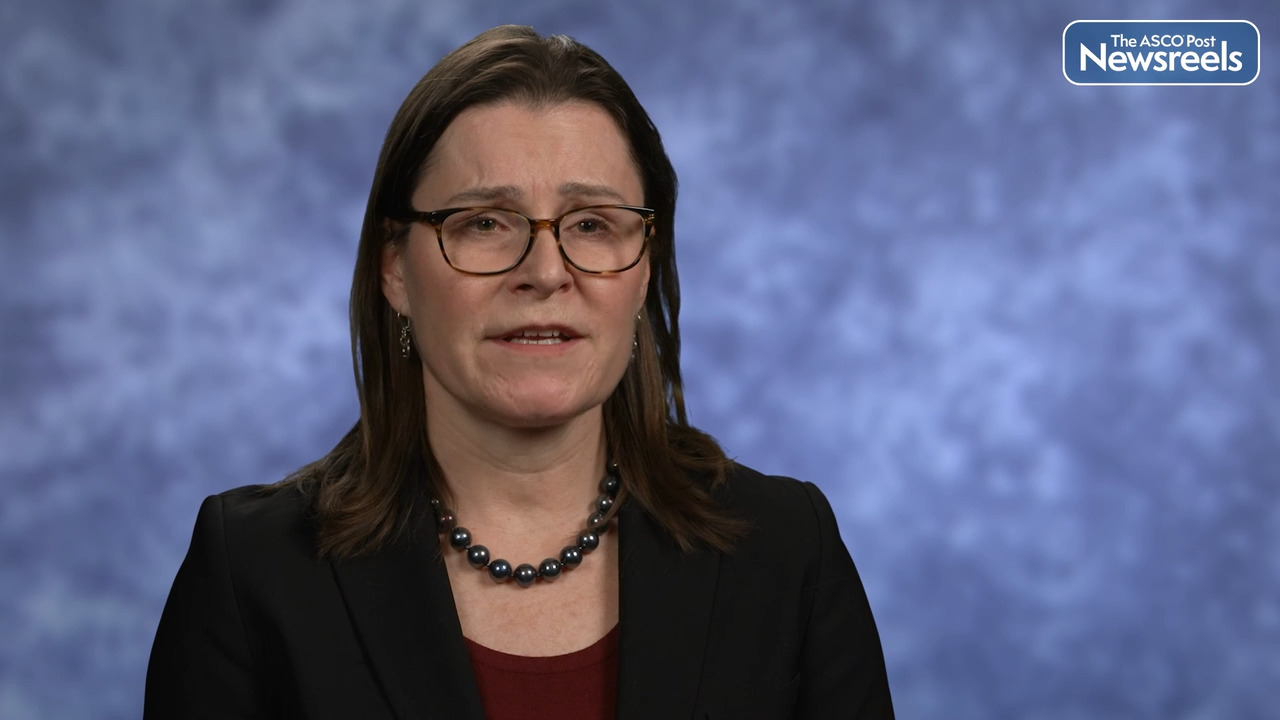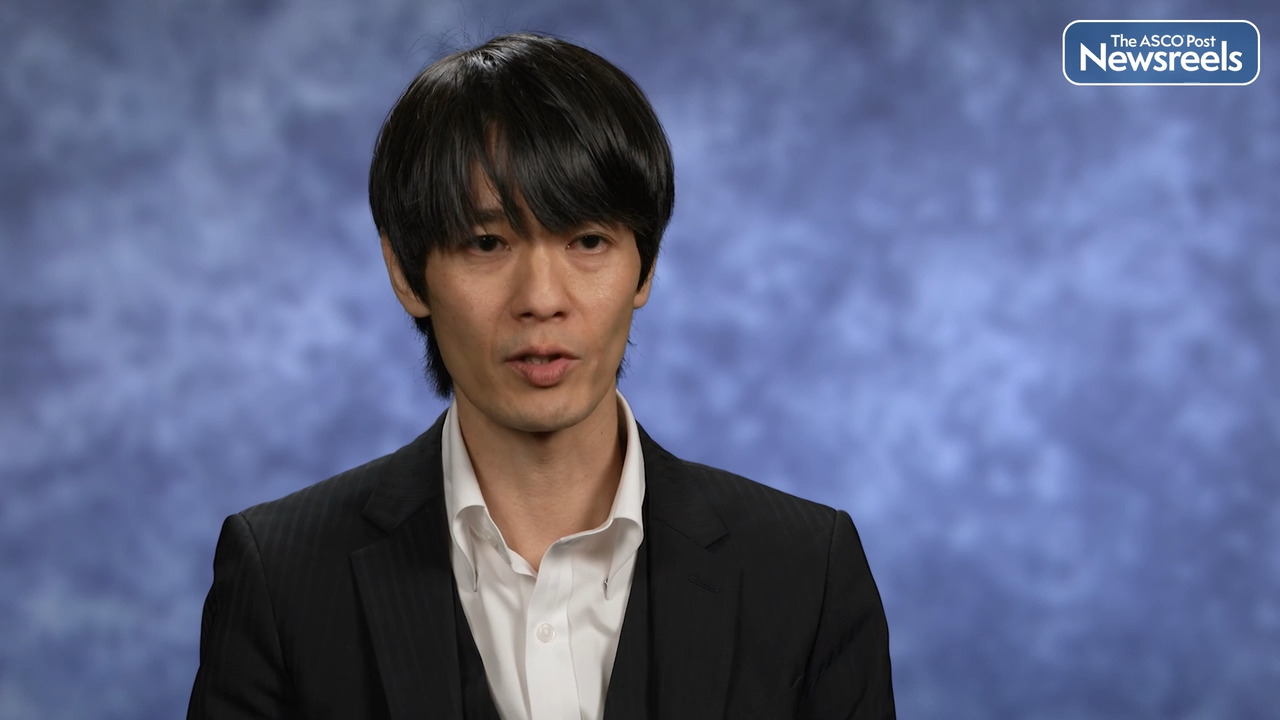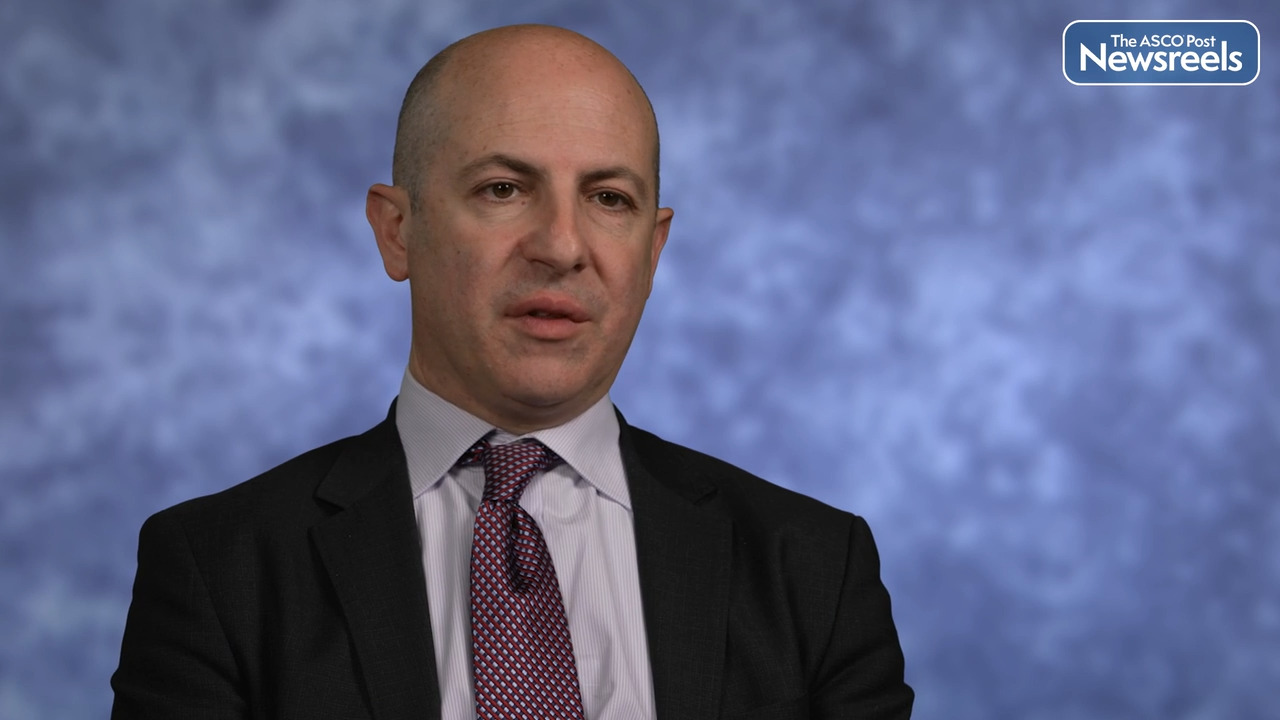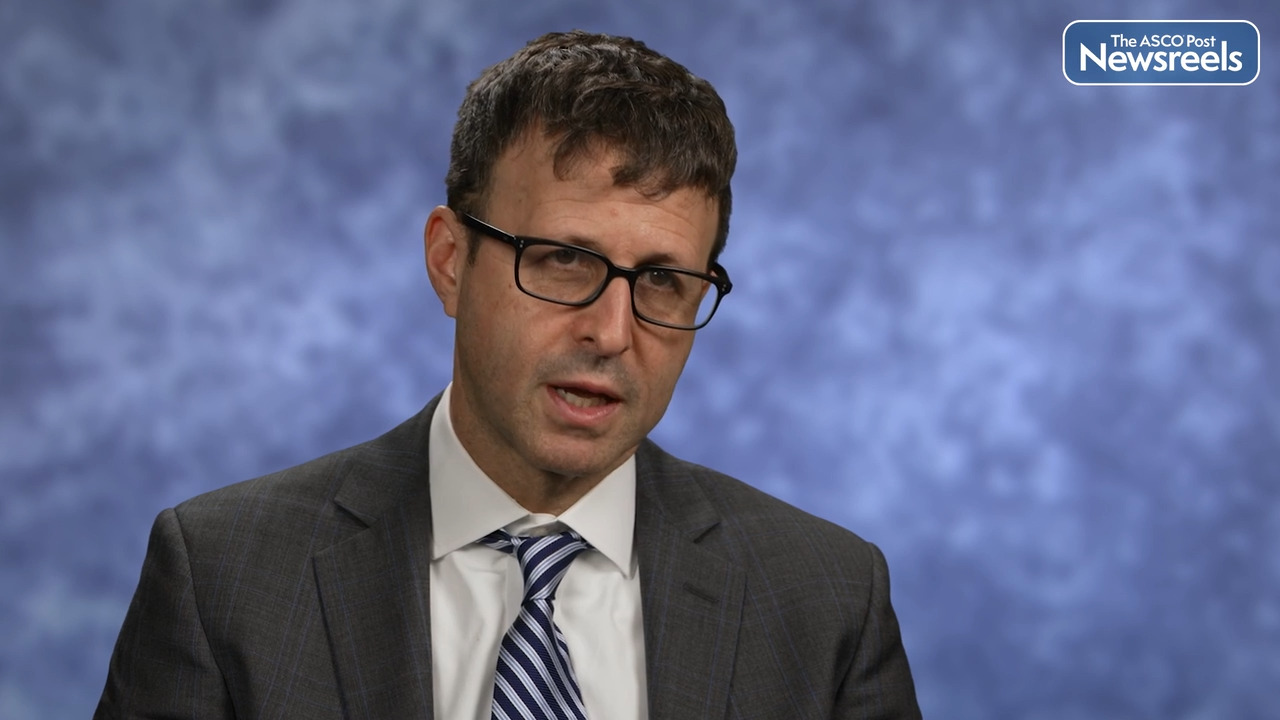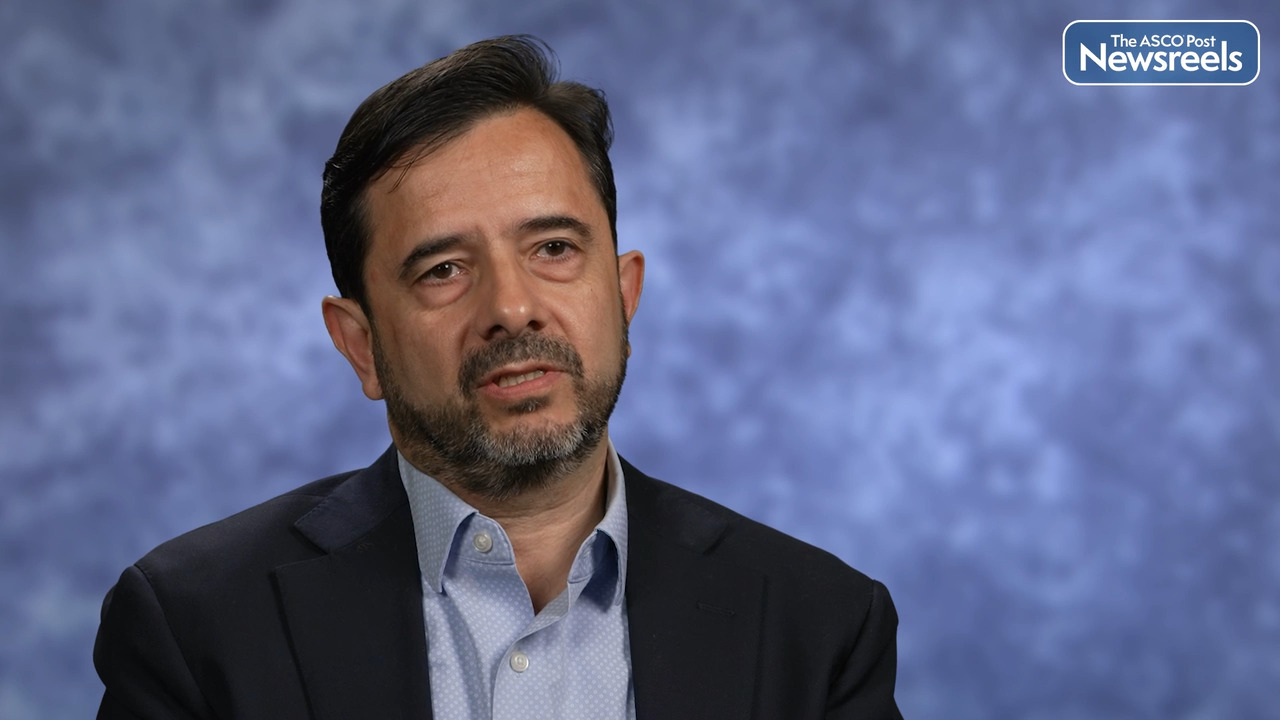Transcript
Disclaimer: This video transcript has not been proofread or edited and may contain errors.
The proposal of the SUNLIGHT Study was to demonstrate whether the addition of bevacizumab to conventional trifluridine/tipiracil therapy in the third line setting of patients with metastatic colorectal cancer, improve efficacy by considering overall survival, and other efficacy parameters. So, in this way, the SUNLIGHT Study was designed as an international multi-center Phase 3 study that treat patients in the refractory setting of metastatic colorectal cancer, and patients were randomized to receive either bevacizumab plus trifluridine/tipiracil in the conventional approved doses, or trifluridine/tipiracil alone. Patients were treated until progression of the disease or unacceptable toxicity, and the primary endpoint was to demonstrate an advantage in overall survival, and a secondary endpoint, we aimed to evaluate progression for survival, overall response rate, disease control rate, quality of life, and safety, of course.
Patients with metastatic colorectal cancer that had failed two prior regimens, including a fluoropyrimidine, oxaliplatin, irinotecan, and anti-VEGF therapy and/or anti-EGFR therapy for those patients that were RAS wild-type were included in the study, and patients were [inaudible 00:01:24] by the geographical region, by the diagnosis, and the duration of the metastatic disease, and by the RAS status. A total of 492 patients were included in the study, and patients were well-balanced in the clinical characteristics, and between the two arms. More than 45% of the patients actually were older than 65 years old, and we had a good balance between men and female population.
We had a slightly superior proportion of patients having RAS mutations up to 70%, compared to what is the standard of care in these patients, but actually, this shows that this is a clearly unmet need population. The study met the primary endpoint. There was a statistically significant increase in survival, with a [inaudible 00:02:15] ratio of 4.61. This was a p-value of less than 0.001, and the median survival increased from 7.5 months on the control arm, to 10.8 months in the experimental arm, and actually, the curves varied from the early beginning.
All the other parameters that we look for, like progression-free survival, time to deterioration in the global health status, time to the deterioration in the performance status to ECOG from zero or one to two or more, were statistically significant, favoring the experimental arm, combining trifluridine/tipiracil plus bevacizumab. Of note, it's important also to look at the safety profile, and the safety profile was manageable, without any new side effects that were not expected. Actually, we didn't have any treatment-related death during the study, and the proportion of patients that had either Grade 3 or more adverse events or serious adverse events was very similar in the two arms. A slightly superior proportion of patients had either [inaudible 00:03:16] reductions or [inaudible 00:03:18] delays in the experimental arm with trifluridine/tipiracil, but the proportion of patients that had adverse events, leading to discontinuation of the trial, was the same in the two arms.
So, to conclude, the SUNLIGHT Study is the first study in the refractory setting, that actually shows an improvement in overall survival of trifluridine/tipiracil plus bevacizumab, in thinking that the control arm was an active regimen. The regimen was trifluridine/tipiracil alone. The advantage was observed in overall survival, progression-free survival, as well as the other parameters, referring more to the quality of life, and actually it is with a very manageable safety profile.
The presentation of this study actually will be followed by a publication, and we hope that [inaudible 00:04:07] authorities will consider the labeling of the combination. My perception is that this is going to be a rapid process, because both drugs actually have been approved for the treatment of colorectal cancer, trifluridine/tipiracil, a single agent, and bevacizumab in combination with other chemotherapy regimens.
